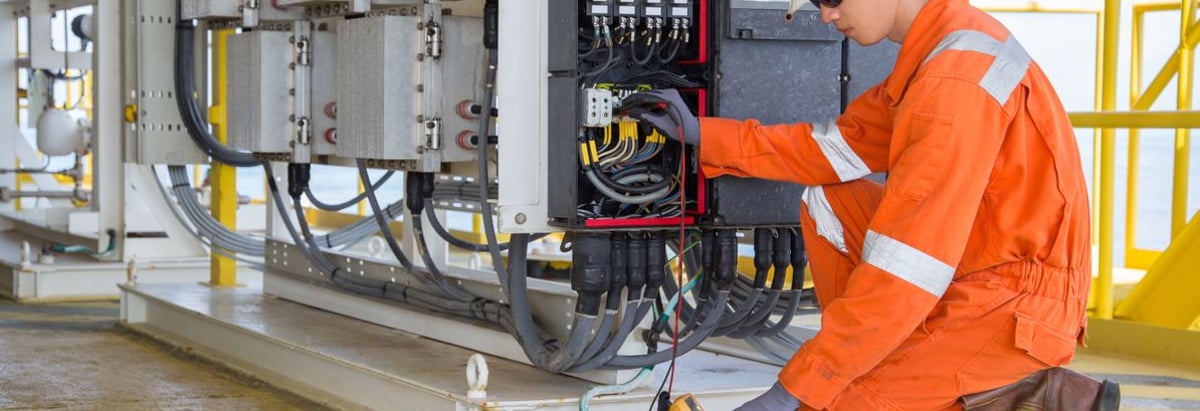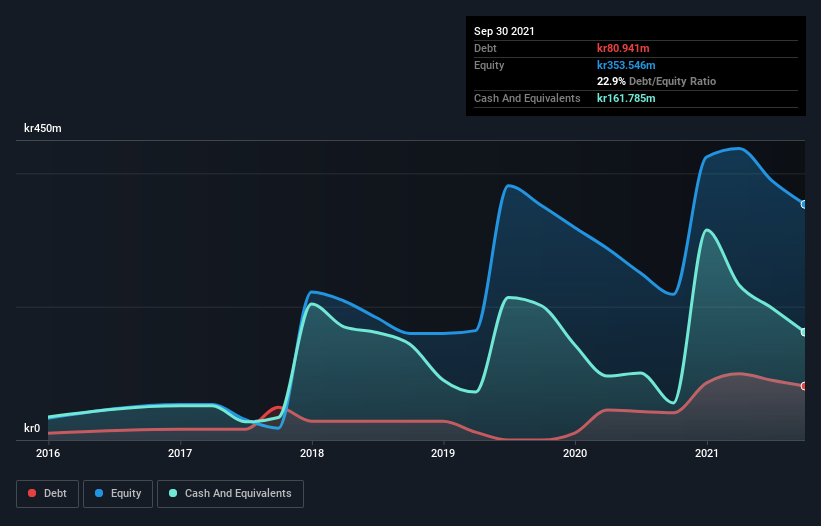
Legendary fund manager Li Lu (who Charlie Munger backed) once said, 'The biggest investment risk is not the volatility of prices, but whether you will suffer a permanent loss of capital.' So it might be obvious that you need to consider debt, when you think about how risky any given stock is, because too much debt can sink a company. Importantly, Climeon AB (publ) (STO:CLIME B) does carry debt. But is this debt a concern to shareholders?
What Risk Does Debt Bring?
Debt assists a business until the business has trouble paying it off, either with new capital or with free cash flow. Ultimately, if the company can't fulfill its legal obligations to repay debt, shareholders could walk away with nothing. While that is not too common, we often do see indebted companies permanently diluting shareholders because lenders force them to raise capital at a distressed price. By replacing dilution, though, debt can be an extremely good tool for businesses that need capital to invest in growth at high rates of return. When we examine debt levels, we first consider both cash and debt levels, together.
View our latest analysis for Climeon
What Is Climeon's Net Debt?
You can click the graphic below for the historical numbers, but it shows that as of September 2021 Climeon had kr80.9m of debt, an increase on kr40.8m, over one year. However, it does have kr161.8m in cash offsetting this, leading to net cash of kr80.8m.

A Look At Climeon's Liabilities
Zooming in on the latest balance sheet data, we can see that Climeon had liabilities of kr136.2m due within 12 months and liabilities of kr80.9m due beyond that. Offsetting these obligations, it had cash of kr161.8m as well as receivables valued at kr81.4m due within 12 months. So it actually has kr26.0m more liquid assets than total liabilities.
This short term liquidity is a sign that Climeon could probably pay off its debt with ease, as its balance sheet is far from stretched. Succinctly put, Climeon boasts net cash, so it's fair to say it does not have a heavy debt load! The balance sheet is clearly the area to focus on when you are analysing debt. But ultimately the future profitability of the business will decide if Climeon can strengthen its balance sheet over time. So if you want to see what the professionals think, you might find this free report on analyst profit forecasts to be interesting.
Over 12 months, Climeon made a loss at the EBIT level, and saw its revenue drop to kr60m, which is a fall of 49%. To be frank that doesn't bode well.
So How Risky Is Climeon?
Statistically speaking companies that lose money are riskier than those that make money. And in the last year Climeon had an earnings before interest and tax (EBIT) loss, truth be told. And over the same period it saw negative free cash outflow of kr198m and booked a kr110m accounting loss. Given it only has net cash of kr80.8m, the company may need to raise more capital if it doesn't reach break-even soon. Even though its balance sheet seems sufficiently liquid, debt always makes us a little nervous if a company doesn't produce free cash flow regularly. The balance sheet is clearly the area to focus on when you are analysing debt. But ultimately, every company can contain risks that exist outside of the balance sheet. For example, we've discovered 3 warning signs for Climeon (1 makes us a bit uncomfortable!) that you should be aware of before investing here.
At the end of the day, it's often better to focus on companies that are free from net debt. You can access our special list of such companies (all with a track record of profit growth). It's free.
New: AI Stock Screener & Alerts
Our new AI Stock Screener scans the market every day to uncover opportunities.
• Dividend Powerhouses (3%+ Yield)
• Undervalued Small Caps with Insider Buying
• High growth Tech and AI Companies
Or build your own from over 50 metrics.
Have feedback on this article? Concerned about the content? Get in touch with us directly. Alternatively, email editorial-team (at) simplywallst.com.
This article by Simply Wall St is general in nature. We provide commentary based on historical data and analyst forecasts only using an unbiased methodology and our articles are not intended to be financial advice. It does not constitute a recommendation to buy or sell any stock, and does not take account of your objectives, or your financial situation. We aim to bring you long-term focused analysis driven by fundamental data. Note that our analysis may not factor in the latest price-sensitive company announcements or qualitative material. Simply Wall St has no position in any stocks mentioned.
About OM:CLIME B
Moderate with adequate balance sheet.


